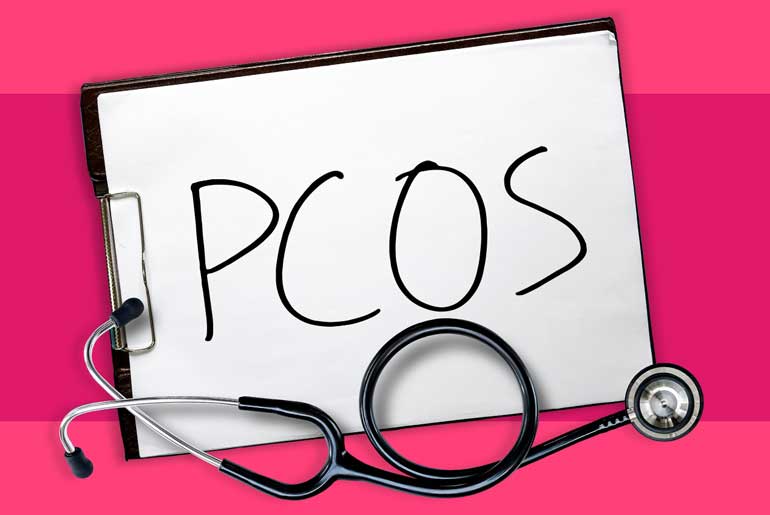Polycystic Ovary Syndrome (PCOS) is a common hormonal disorder affecting women of reproductive age. It is characterized by irregular menstrual cycles, excess androgen hormones leading to acne and excessive hair growth, and often, insulin resistance, which can cause weight gain and increase the risk of type 2 diabetes. The exact cause of PCOS is not fully understood but is believed to involve genetic and environmental factors. Management typically includes lifestyle changes such as diet and exercise, medications to regulate menstrual cycles and manage symptoms, and fertility treatments for those trying to conceive. PCOS is a lifelong condition that can vary in severity, and individualized treatment plans are essential for managing its diverse symptoms. Here are some tips for managing and treating PCOS symptoms:
1. Consult a Healthcare Professional:
If you suspect you have PCOS or have already been diagnosed, consult a healthcare provider who specializes in PCOS management. They can help you develop a personalized treatment plan.
2. Lifestyle Changes:
-
-
- Diet: Adopt a balanced and healthy diet. Focus on whole foods, lean proteins, fiber-rich vegetables, and whole grains. Limit sugar and refined carbohydrates, as insulin resistance is common in PCOS.
- Exercise: Engage in regular physical activity. Exercise can help improve insulin sensitivity and regulate menstrual cycles. Aim for at least 150 minutes of moderate-intensity exercise per week.
- Weight Management: Achieving and maintaining a healthy weight can significantly improve PCOS symptoms. Even a modest weight loss of 5-10% can make a difference.
3. Medications:
-
- Birth Control Pills: Oral contraceptives can help regulate menstrual cycles and control androgen (male hormone) levels, reducing symptoms like acne and excess hair growth.
- Anti-Androgen Medications: Medications like spironolactone can be prescribed to reduce excess hair growth and acne.
- Metformin: This medication can improve insulin sensitivity and is sometimes used to manage PCOS, especially in women with insulin resistance.
4. Fertility Treatments:
If you’re trying to conceive, your healthcare provider may recommend fertility treatments, such as ovulation induction medications (e.g., Clomid) or in vitro fertilization (IVF).
5. Nutritional Supplements:
-
Some women with PCOS benefit from supplements like inositol, which may improve insulin sensitivity and regulate menstrual cycles. Always consult your healthcare provider before taking any supplements.
6. Stress Management:
-
- High stress levels can exacerbate PCOS symptoms. Explore stress-reduction techniques such as meditation, yoga, deep breathing exercises, or counseling.7.
7. Regular Monitoring:
- It’s essential to keep regular appointments with your healthcare provider for ongoing monitoring and adjustments to your treatment plan.
-
8. Hair Removal:
- If excess hair growth is a concern, methods like shaving, waxing, threading, or laser hair removal can help manage this symptom.
-
9. Skin Care:
- Acne associated with PCOS can be managed with proper skincare routines and, if necessary, topical or oral medications prescribed by a dermatologist.
-
10.Dietary Supplements:
- Some women with PCOS may benefit from supplements like omega-3 fatty acids or vitamin D but consult your healthcare provider before adding supplements to your regimen.
-
11. Support Groups:
- Joining a support group or seeking counseling can provide emotional support and coping strategies for dealing with the challenges of PCOS.
-
12. Regular Check-Ups:
- Regularly monitor your blood pressure, cholesterol levels, and glucose levels, as women with PCOS are at an increased risk of metabolic disorders.
Remember that PCOS varies from person to person, and what works best for one individual may not work for another. It’s essential to work closely with your healthcare provider to develop a tailored treatment plan that addresses your specific symptoms and needs.
Disclaimer:
The information contained in this article is for educational and informational purposes only and is not intended as a health advice. We would ask you to consult a qualified professional or medical expert to gain additional knowledge before you choose to consume any product or perform any exercise.







